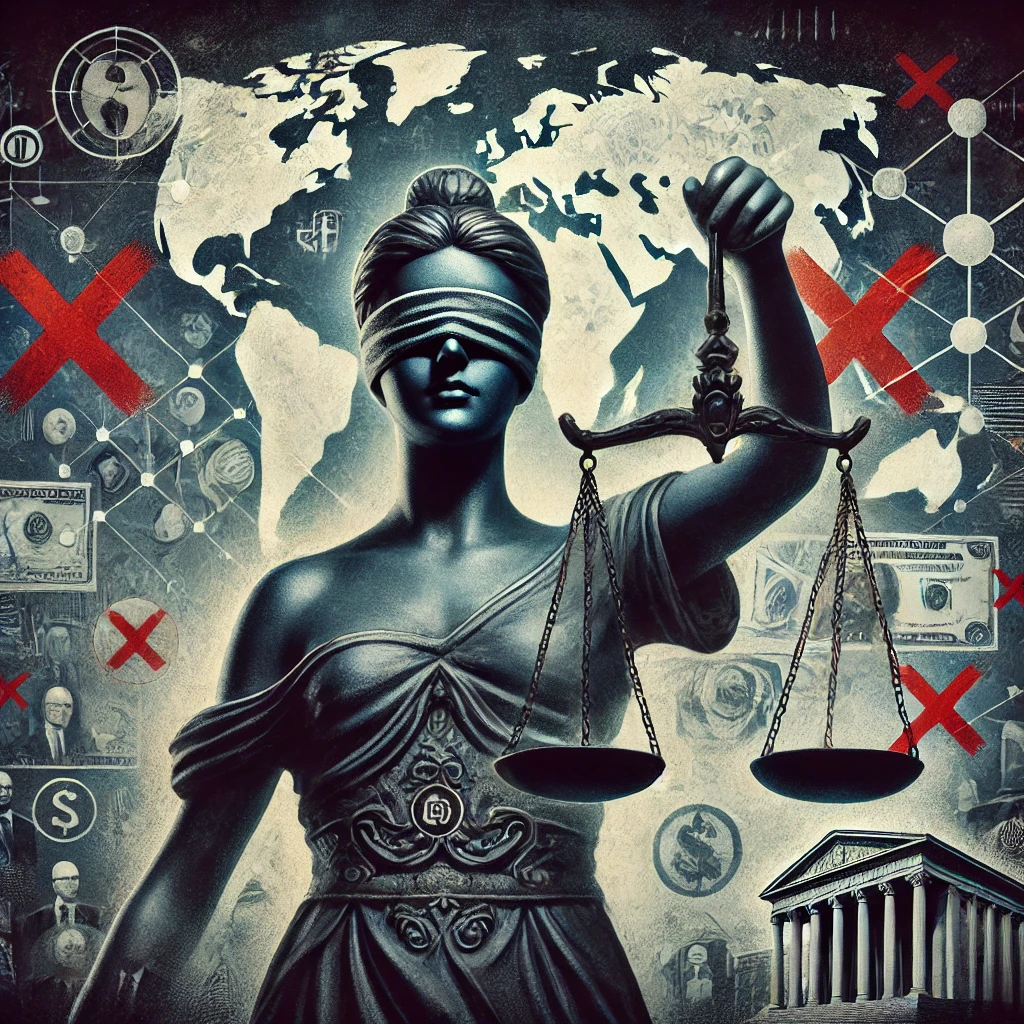Human Rights Experts Warn Against Use of ‘Rebuttable Presumption’ in Sanctions Designations
Experts Raise Alarming Concerns Over Fairness and Due Process in Global Sanctions Frameworks.

A group of independent human rights experts has expressed deep concerns over the growing reliance on the "rebuttable presumption" of wrongdoing in sanctions regulations and procedures, raising fundamental questions about fairness, due process, and adherence to international legal standards. The experts cautioned that the burden of proof appears to be shifting onto targeted individuals and entities, undermining key principles of justice.
Concerns Over Arbitrary Designations and Extraterritorial Enforcement
According to the experts, many sanctions designations are undertaken on the basis of an alleged or perceived violation of domestic or international laws, with enforcement often carried out extraterritorially. These actions, they emphasized, are driven primarily by foreign policy and national security objectives, rather than rigorous legal determinations.
“It is of great concern that decisions on sanctions designations of persons and entities, or of anyone with nexus with such persons or entities, are often undertaken and enforced extraterritorially on a presumption of wrongdoing, based on an alleged or perceived violation of either domestic or international law,” the experts stated.
What is particularly troubling, they noted, is that these sanctions are enforced without thorough judicial proceedings, independent review of evidence, or formal convictions of those targeted. In many instances, individuals and entities are sanctioned based on opaque criteria, without full disclosure of the evidence used against them.
Key Legal Frameworks and Regulations Involved
The experts pointed out that several legal frameworks and regulations, particularly in the United States and the European Union, incorporate the use of rebuttable presumptions in sanction designations. These include:
- The U.S. Countering America’s Adversaries Through Sanctions Act (CAATSA) of 2017
- The U.S. Uyghur Forced Labor Prevention Act of 2021
- The EU Council’s Regulation 2022/1998, concerning restrictive measures against serious human rights violations and abuses
- The EU Council’s Regulation 2580/2001, which imposes restrictive measures against certain persons and entities associated with terrorism
By relying on lower evidentiary thresholds, these measures allow authorities to impose economic and legal restrictions without adhering to the "beyond a reasonable doubt" standard typically required in criminal proceedings.
Lack of Procedural Safeguards and Challenges in Appeals
One of the most alarming aspects of the current sanctions framework is the significant difficulty in challenging such designations. Once a person or entity is sanctioned, they face numerous hurdles in appealing the decision, as the burden is placed on them to prove their innocence.
This challenge is exacerbated by the fact that sanctioned individuals and entities are frequently denied access to the evidence upon which their designation is based. Without knowledge of the specific allegations or supporting materials, they are unable to effectively contest the measures taken against them.
The experts likened this approach to an administrative process that, while avoiding the procedural requirements of criminal law, often results in penalties comparable in severity to criminal or civil punishments, leading to long-term financial and reputational damage.
Call for Immediate Reform and Judicial Oversight
In light of these concerns, the human rights experts have urged sanctioning governments and international bodies to take immediate steps to review their sanctions frameworks. Specifically, they called for an end to the use of the rebuttable presumption of wrongdoing in sanctions designations.
“Independent of any assessment about the legality of such measures, any action on sanctions-related matters should be undertaken following a formal process before an independent judicial authority, providing the appropriate procedural safeguards of fairness and due process according to international law,” they stated.
Ensuring that sanctions frameworks align with established human rights standards is critical to maintaining credibility and justice. The experts have already communicated their concerns directly to the United States government and the European Union, urging them to revisit and reform their sanctioning procedures.
Implications for Global Governance and Human Rights
As the use of economic sanctions continues to expand as a tool of foreign policy and national security, the international community faces an urgent need to ensure that these measures comply with principles of fairness and due process. Failure to address these concerns could lead to further erosion of legal protections, increased economic harm to unjustly targeted individuals and businesses, and a weakening of trust in international institutions.
Moving forward, it remains to be seen whether governments will heed the calls for reform or continue to employ mechanisms that risk violating fundamental human rights and legal norms. The debate over the fairness and legality of sanctions is likely to remain a contentious issue on the international stage, with far-reaching implications for global governance and the rule of law.










